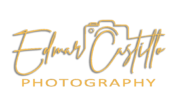- What is Commercial Usage License in Photography?
- Understanding Commercial Usage License in Photography
- Definition: What does commercial usage license mean?
- Types of Commercial Usage Licenses
- Importance of a commercial usage license for clients
- How to obtain a Commercial Usage License
- What is the difference between Print Release and Commercial Usage License?
- Common terms and restrictions in commercial usage licenses
- Conclusion: Importance of understanding commercial usage licenses
What is Commercial Usage License in Photography?
Understanding Commercial Usage License in Photography
When it comes to photography, commercial usage license is an important factor that every photographer and client should be aware of. Essentially, a commercial usage license allows businesses or individuals to use photographs for promotional purposes in exchange for a fee. However, the terms and conditions of these licenses can vary greatly depending on factors such as intended usage, geographical location, and duration.
One key aspect to consider is exclusivity. Some photographers may choose to grant exclusive rights to clients, which means that the client will be the only one allowed to use the photograph for a specific period of time or within a particular market. This type of license typically commands higher fees but provides clients with the assurance of uniqueness in their marketing efforts.
It’s also important to recognize that commercial usage licenses can differ between print media and online platforms. For instance, if a business wants to use photographs for advertisements both on billboards and social media platforms, separate licenses may be required due to differences in reach and exposure.
Understanding these intricacies of commercial usage licenses is crucial for both photographers looking to protect their intellectual property rights and clients seeking legally compliant permissions for using professional images. By being informed about the different types of licensing agreements available and negotiating fair terms with transparency from all parties involved, photographers can ensure their work is properly compensated while clients can make effective use of high-quality visuals in their marketing endeavors.
Tip
Definition: What does commercial usage license mean?
A commercial usage license in photography refers to a legal agreement that enables the buyer to use an image or a series of images for profit-making purposes. This license grants the buyer certain rights that allow them to reproduce, distribute, and display the photographs commercially. It is essential to understand that commercial usage licenses are different from personal or editorial licenses since they involve using photos in marketing materials, advertisements, merchandise, and any other mediums designed for generating revenue.
By obtaining a commercial usage license, individuals and businesses gain the freedom to utilize high-quality visuals that align with their brand messaging while safeguarding against copyright infringement claims. Not only does this provide creatives with valuable resources to support their advertising initiatives or design projects, but it also ensures that they can effectively communicate their brand identity through visually compelling content. With such broad permissions granted under a commercial usage license agreement, businesses have an opportunity to enhance their marketing strategies by incorporating professional imagery into their campaigns.
Types of Commercial Usage Licenses
There are various types of commercial usage licenses in photography, each offering different levels of permission and restrictions. Generally speaking, there are 3 types of licenses for copyrighted works:
Royalty-Free License
One common type is the Royalty-Free (RF) license, which allows the purchaser to use the image for multiple purposes without any additional fees or royalties. This type of license is often preferred by businesses looking for cost-effective options, as it provides a wide range of usage rights such as various marketing channels and campaigns at a fixed price.
Rights-Managed Licensing
On the other hand, there is also Rights-Managed (RM) licensing, which allow clients to use an image for a specified purpose or time period only. With an RM license, the buyer pays for each individual use or has limited permissions based on factors like duration, geographical location, print run size, or industry-specific restrictions. This type of licensing enables photographers or agencies to have greater control over how their images are used and allows them to negotiate higher fees for more exclusive uses.
Creative Commons Licensing
Another emerging type is Creative Commons (CC) licensing. CC licenses provide a level of flexibility that allows photographers to share their work with certain conditions attached. These licenses offer several variations depending on what permissions are granted – from allowing non-commercial use only to permitting both commercial and non-commercial uses with proper attribution.
Understanding these various types of commercial usage licenses will help both photographers and businesses navigate the complexities surrounding image rights and licensing agreements effectively. By choosing the most suitable license for their needs, individuals can protect their creative works while enabling businesses to access high-quality visuals that enhance their branding efforts without legal complications or financial burdens.

Importance of a commercial usage license for clients
Having a commercial usage license is essential for clients in the world of photography. It provides them with legal permission to use the photos they have purchased in a commercial context, such as marketing campaigns, advertisements, and promotional materials. Without this license, clients could find themselves facing copyright infringement issues or even legal consequences.
Not only does a commercial usage license protect clients from potential legal problems, but it also gives them the freedom to fully utilize the photographs they have paid for. With this license in place, clients can confidently showcase their products or services using high-quality images that align with their brand identity. It allows for flexibility and creative control over how the photographs are used in various marketing efforts.
Additionally, having a commercial usage license enhances the professionalism and credibility of a business or brand. By obtaining this license, clients demonstrate that they value intellectual property rights and adhere to ethical practices in their industry. This can help build trust with customers and enhance their overall reputation. Investing in a commercial usage license is not just about compliance; it’s an investment in protecting one’s brand image while harnessing the power of visual storytelling through photography.
How to obtain a Commercial Usage License
To obtain a commercial usage license in photography, there are a few key steps you need to follow.
First, it’s essential to understand what a commercial usage license entails and why it is necessary. Unlike personal or editorial use, which generally doesn’t require permission from the photographer, commercial usage involves using an image for profit-related purposes such as advertising, marketing campaigns, or product packaging. To acquire this type of license, you’ll typically need to contact the photographer directly or reach out to their agent or representative. This not only ensures that you are obtaining the proper legal permission but also allows you to negotiate the terms and fees associated with the commercial usage.
Once you have connected with the photographer or their representative, they will likely provide you with a licensing agreement outlining the details of the commercial usage. The agreement should specify how long you can use the image for your intended purpose and any restrictions on its distribution or modification. It’s crucial to carefully review these terms and seek legal advice if necessary to ensure compliance with copyright laws.
By obtaining a commercial usage license through proper channels, not only do you protect yourself legally from potential copyright infringement claims but also support photographers by compensating them fairly for their work. Remember that each licensing agreement may vary depending on factors such as image quality, duration of use, and overall exposure level required. Always communicate openly with photographers and respect their rights as creators when seeking a commercial usage license.
What is the difference between Print Release and Commercial Usage License?
When it comes to licensing photography for commercial use, you may come across two terms frequently: print release and commercial usage license. While they may seem similar at first glance, there are key differences between the two that are important to understand. Refer to my other blog on Print Release.
A print release is a legal document that grants you the right to make copies of a photograph for personal use. This means you can reproduce the image in prints or create products featuring the photo, but only for personal purposes such as framing it for your home or sharing it with friends and family. On the other hand, a commercial usage license allows you to utilize the photograph in any way related to business or promotion. This includes using it in advertisements, websites, social media posts, product packaging, and more.
It’s crucial to comprehend these distinctions because if you purchase only a print release thinking it covers commercial use as well, you may unknowingly infringe on copyright laws. It’s always best to consult with the photographer or read through their licensing terms carefully before assuming what usage rights are included with your purchase. Clarifying these details upfront will save you from potential legal complications and ensure proper respect for intellectual property rights while still getting exceptional visuals for your business needs.
Subscribe to my Newsletter
You’ll receive emails to confirm your subscription.
Common terms and restrictions in commercial usage licenses
Commercial usage licenses are an essential aspect of the photography business, allowing photographers to protect their work while earning a living from it. However, navigating these licenses can be a bit overwhelming for both photographers and clients alike.
One common term often seen in commercial usage licenses is exclusive. An exclusive license grants the client sole rights to use the photographs for a specific purpose or within a particular industry, ensuring that no one else can use those images in the same context. This type of license typically comes with a higher price tag due to its restrictive nature but provides clients with the assurance that their competitors will not have access to the same visuals.
Another common restriction found in commercial usage licenses is duration. This refers to how long the client can use and reproduce your photographs for their intended purposes. The duration can vary greatly from one license agreement to another, ranging from one-time use for a specific campaign or event to unlimited perpetual use. Photographers tends to carefully consider this restriction when setting licensing fees as longer duration generally command higher prices. Clients should also be mindful of this limitation so they understand how long they will have permission to utilize the images before needing additional rights or renewing their license.
By understanding these common terms and restrictions in commercial usage licenses, both photographers and clients can ensure a mutually beneficial relationship while protecting each other’s interests. Whether you’re behind or in front of the camera lens, taking time to review and negotiate these terms will help create clarity and foster trust between all parties involved.
Tip
Conclusion: Importance of understanding commercial usage licenses
Understanding commercial usage licenses is crucial in the world of photography for both photographers and clients. For photographers, comprehending these licenses allows them to protect their work and ensure they are properly compensated for its use. It also gives them control over how their images are used and prevents potential legal issues down the line.
On the other hand, clients need to have a clear understanding of commercial usage licenses to avoid any unauthorized use or copyright infringement. By obtaining the appropriate license, clients can confidently utilize the images for their intended purpose without worrying about legal consequences. This knowledge establishes a mutual trust between photographers and clients, fostering successful collaborations and long-lasting professional relationships.
An important aspect of understanding commercial usage licenses is recognizing that not all licenses are created equal. There are different types of licenses available, each with its own set of limitations on how the image can be used, as well as varying duration and territories in which it can be used. By familiarizing themselves with these nuances, both photographers and clients can make informed decisions regarding licensing agreements that align with their individual needs and expectations.
Overall, a solid comprehension of commercial usage licenses benefits everyone involved in photography by promoting fair compensation for creators while allowing clients to utilize imagery effectively and legally. Taking the time to understand these licenses ensures that both parties are protected from any potential legal issues while supporting ethical practices within the ind
Are you ready to ditch boring headshots?
Don’t let your professional image suffer from outdated headshots any longer – take charge and book your session today! I’ll bring out the best version of you, while saving you time and hassle. Upgrade your corporate presence now and make a lasting impression!

